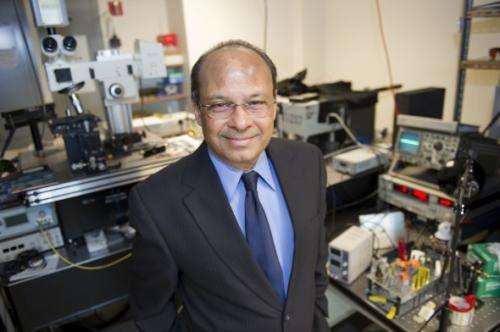Professor works toward a better brainwave monitor

The electrical outputs of the brain contain massive amounts of information that could be a powerful resource if we could fully tap into it. Our brain processes things we see before any conscious recognition of those images comes to bear. While we can already measure electromagnetic activity with EEG and MEG, both of these techniques are limited.
A new method developed in the lab of physics professor Srinivas Sridhar could measure the brain's activity to, for example, detect threatening patterns in a drone pilot's field of vision or track the brain's response to neurological drugs. Other possible applications range from emotion analysis to neuromarketing, whereby researchers examine the unconscious response to advertisements
Backed by an I-Corps grant from the National Science Foundation, Sridhar plans to turn this idea into a reality. "It's a platform that could be adapted to different applications," Sridhar said of the theoretically feasible technology. Now he and his team, which comprises psychology professor Yuri Petrov and associate research scientist Ozgur Yavuzcetin, are developing an experimental prototype.
Sridhar noted that the new technology could be useful for many medical applications, including monitoring the brain of an anesthetized patient.
The new technology would be completely portable. Sridhar envisions an iPhone app that collects brainwave activity of patients with neurological disorders, processes the data in the cloud and then broadcasts it to their doctors.
"The I-Corps program creates an innovation ecosystem to translate NSF research into real products," Sridhar said. "The goal is simple: Commercialize this." In partnership with Northeastern Health Sciences Entrepreneur alumnus Roy Miller, that is exactly what the team plans to do.
More information: works.bepress.com/ssridhar



















